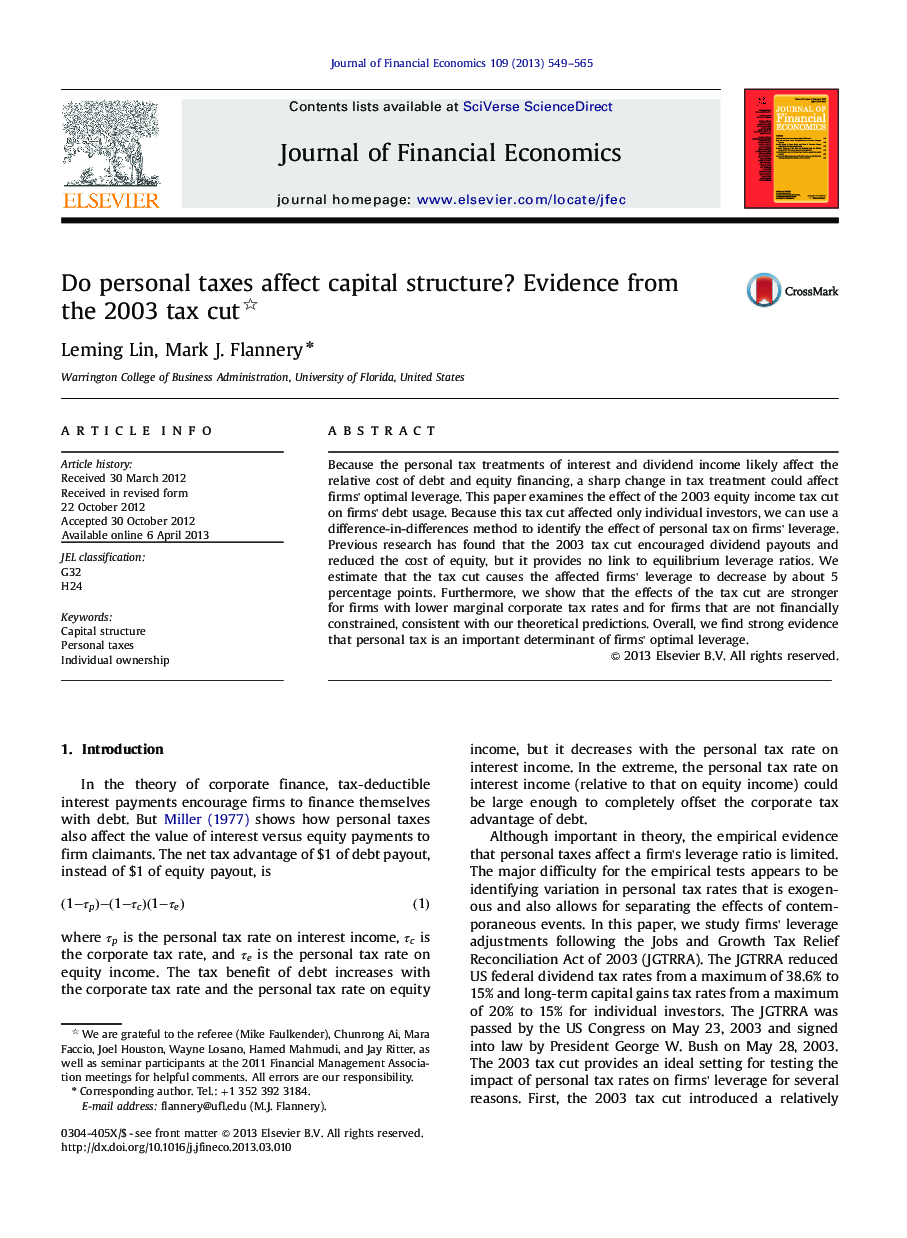| Article ID | Journal | Published Year | Pages | File Type |
|---|---|---|---|---|
| 10475793 | Journal of Financial Economics | 2013 | 17 Pages |
Abstract
Because the personal tax treatments of interest and dividend income likely affect the relative cost of debt and equity financing, a sharp change in tax treatment could affect firms' optimal leverage. This paper examines the effect of the 2003 equity income tax cut on firms' debt usage. Because this tax cut affected only individual investors, we can use a difference-in-differences method to identify the effect of personal tax on firms' leverage. Previous research has found that the 2003 tax cut encouraged dividend payouts and reduced the cost of equity, but it provides no link to equilibrium leverage ratios. We estimate that the tax cut causes the affected firms' leverage to decrease by about 5 percentage points. Furthermore, we show that the effects of the tax cut are stronger for firms with lower marginal corporate tax rates and for firms that are not financially constrained, consistent with our theoretical predictions. Overall, we find strong evidence that personal tax is an important determinant of firms' optimal leverage.
Related Topics
Social Sciences and Humanities
Business, Management and Accounting
Accounting
Authors
Leming Lin, Mark J. Flannery,
